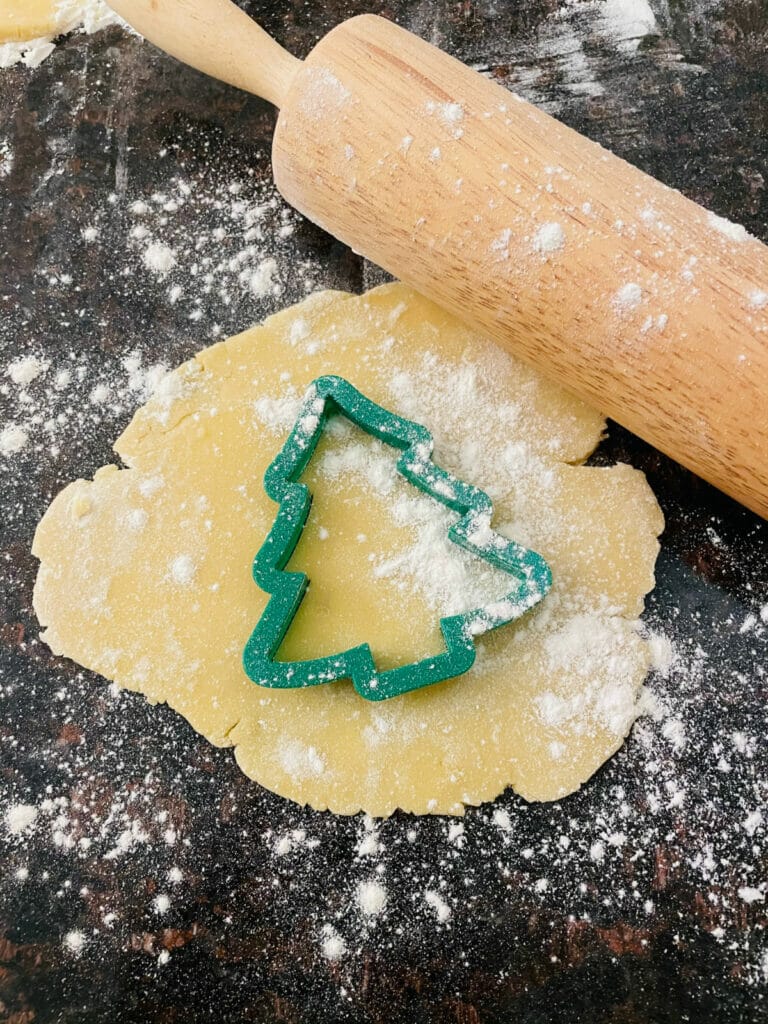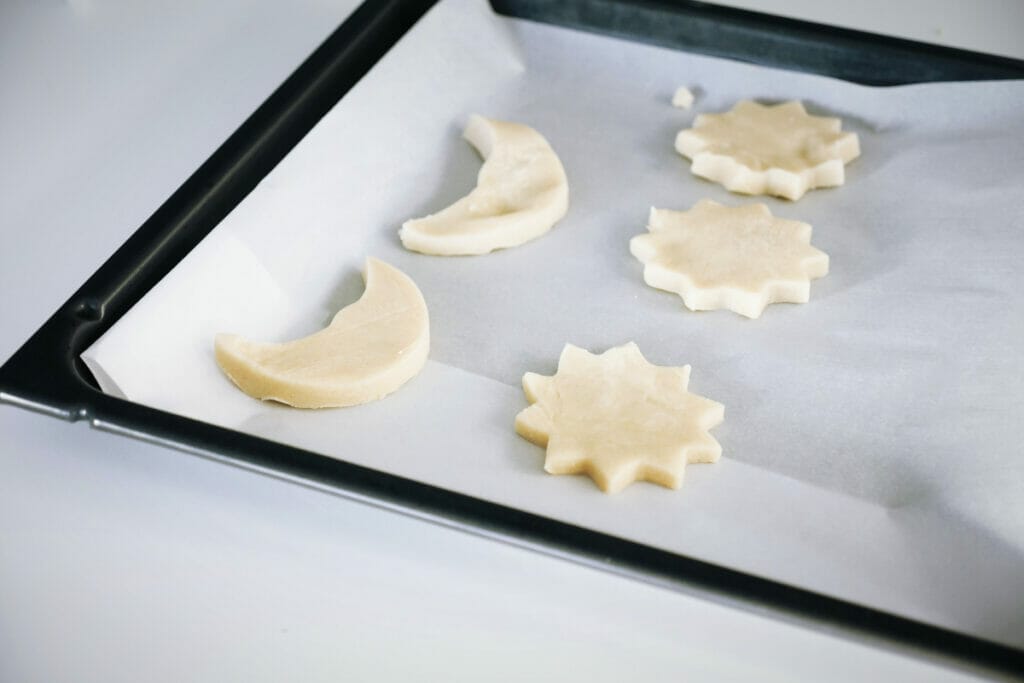As an Amazon Associate, I earn from qualifying purchases. In addition, I participate in several other affiliate programs that allow me to earn while I recommend products I love.
Refrigerating or chilling your cookie dough is often recommended in recipes and figuring out how long you can chill your cookie dough is a great way to fix lots of cookie baking issues as it helps you end up with puffier cookies.
So, how long should you chill cookie dough?
Is it an exact science?
Does it really matter?
Read on in this article on how long to chill cookie dough while we go over some general tips and help you figure out, based on the type of dough and what your plans are, how long you need to refrigerate the dough for.

The first thing to keep in mind is that often, your cookie recipe will already have a suggestion for how long to chill the dough.
Because recipes are formulated so carefully, it’s often better to follow those instructions.
But let’s say that it isn’t on there, or that you think chilling the cookie dough may help in some way, but the recipe doesn’t call for it.
Some helpful things to remember are that it isn’t an exact formulation, but rather some general rules.
If you just want your dough easier to work with and cut out, put it in the fridge for about an hour and see if it works. If it’s still difficult, add a few more hours.

If you’re wanting to chill your cookie dough to stop your cookies from spreading or make them puffier, it can often help to leave them in for about 12 hours, or overnight for the best effect (and you often end up with a richer flavor as well).
Our Favorite Quirky Kitchen Gadgets
- Select-A-Spice Auto-Measure Carousel – Get your exact spice amount without measuring spoons with this spice carousel. Simply twist the dial for a perfect 1/4 teaspoon measurement!
- Silicone Utensil Rest with Drip Pad – This utensil rest keeps my countertops neat & drip-free!
- Snap N Strain Pot Strainer and Pasta Strainer – I love this strainer because it fits on all pots and pans while also being compact and easy to use!
- Herb Scissors Set – I use these scissors to cut and mince fresh herbs directly into any dish without the tedious work of cutting each herb or dirtying up a cutting board.
- Knife Sharpener – I love how quirky and nifty this rhino shaped knife sharpener is. It definitely puts the FUN in functional!
Fixing sticky cookie dough by chilling
Sometimes, your cookie dough might be too warm, thus making it sticky and harder to work with.
To fix them, chill the cookie dough for anywhere from 1 to 4 hours (you can check along the way).

What this does is chill the butter within the cookie dough (often the part contributing to the stickiness), so that it won’t stick to your hands as much.
It will make it easier to roll, to form into balls, and to cut out.
If this is your only reason for chilling, then you won’t get much extra benefit of chilling it overnight or for longer than a few hours as it will likely have lost most of the stickiness it’s going to lose in that time.

Stop your cookies spreading by chilling cookie dough

Ever ended up with cookies that seemed to spread all over the baking tray?
This can be because your cookie dough was not chilled, and the butter in the dough was too warm.
Cold butter won’t melt as fast in the oven, keeping your cookies puffier and helping them to retain their shape.

Chill your cookie dough for around 3 to 6 hours to prevent spreading, but if you don’t have that long, then just do as long as you can.
Other situations: how long to chill cookie dough

Maybe you just don’t have time to bake your cookie dough right away or you want a richer flavor to develop within the dough.
Usually in these instances, you can just leave your cookie dough in the refrigerator overnight and then you’ll have perfect cookies the next day (but don’t leave for longer than overnight as the baking powder or baking soda will start to lose its effectiveness by a noticeable amount).
Hey! Want more expert cookie baking hacks? Check these out!
- Exactly how long homemade cookies last
- Can you bake cookies on aluminum foil?
- 7 easy ways to soften hard cookies
- Oops! Burned cookies! Here are 9 ways to fix them
- Help! My cookie dough is crumbly!
- Why are my cookies burnt on the bottom?
- How long does cookie dough last?
- Tips on Making Your Cookies Chewier
- How to avoid cakey cookies
- Exactly how to freeze cookie dough
- Help! Too much butter in cookies: what to do!
- Tips on Making your Cookies Super Moist
- Exactly how to bake your frozen cookies
- Can you use salted butter in cookies?
- Expert cookie storage tips
- Help! I’m out of butter – can I still make cookies without butter?
- How to make cookies without vanilla extract
- Help! How to make cookies without brown sugar
- How to use cake flour in cookies
- Help! How do I make cookies without eggs?
- Can you make cookies without baking soda?
- Can you use bread flour in cookies?
- Exactly how to make cookies more puffy
- How to make cookies without baking powder
- How to fix wet and sticky cookie dough
